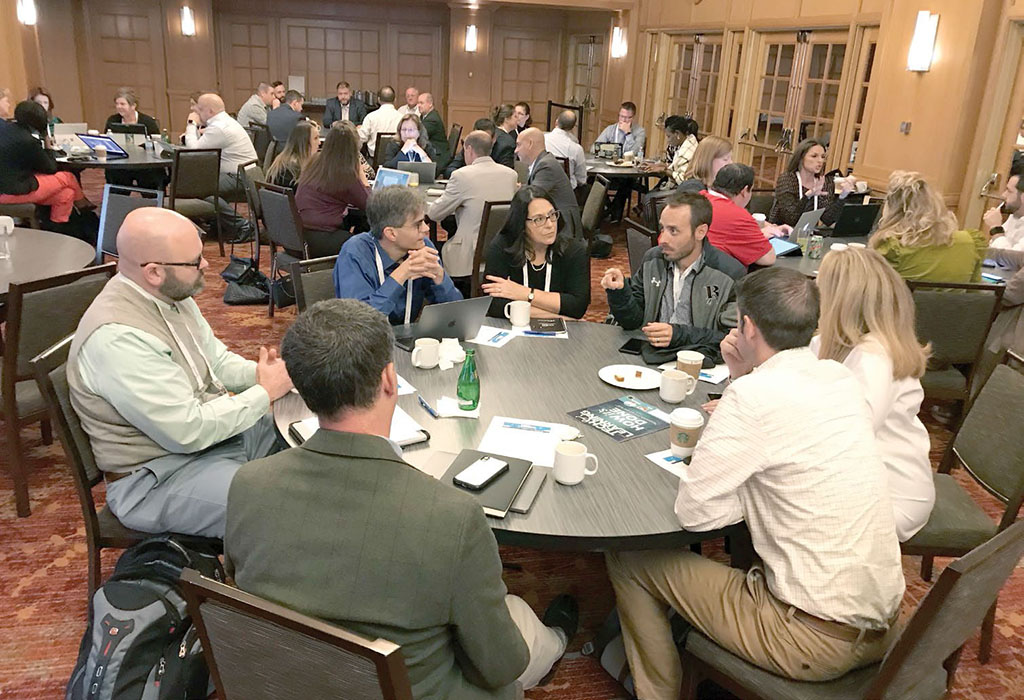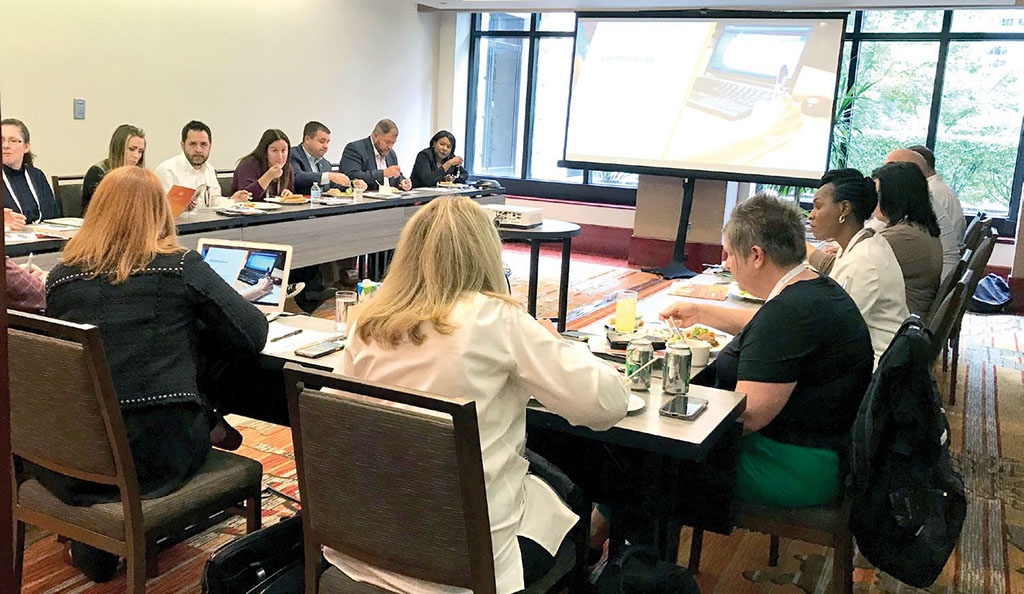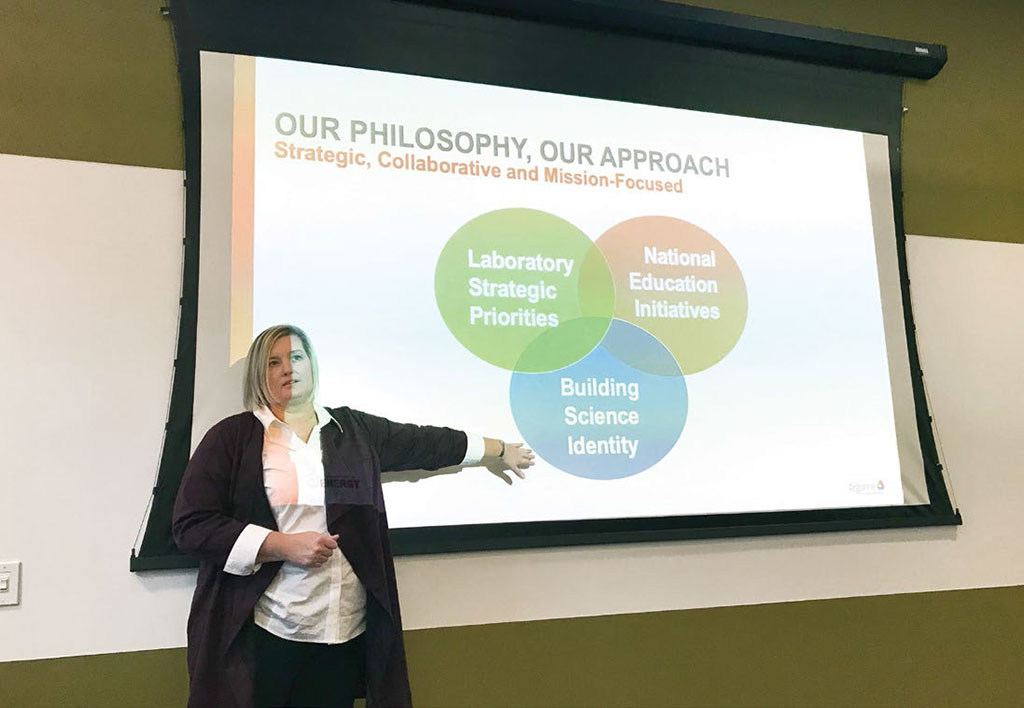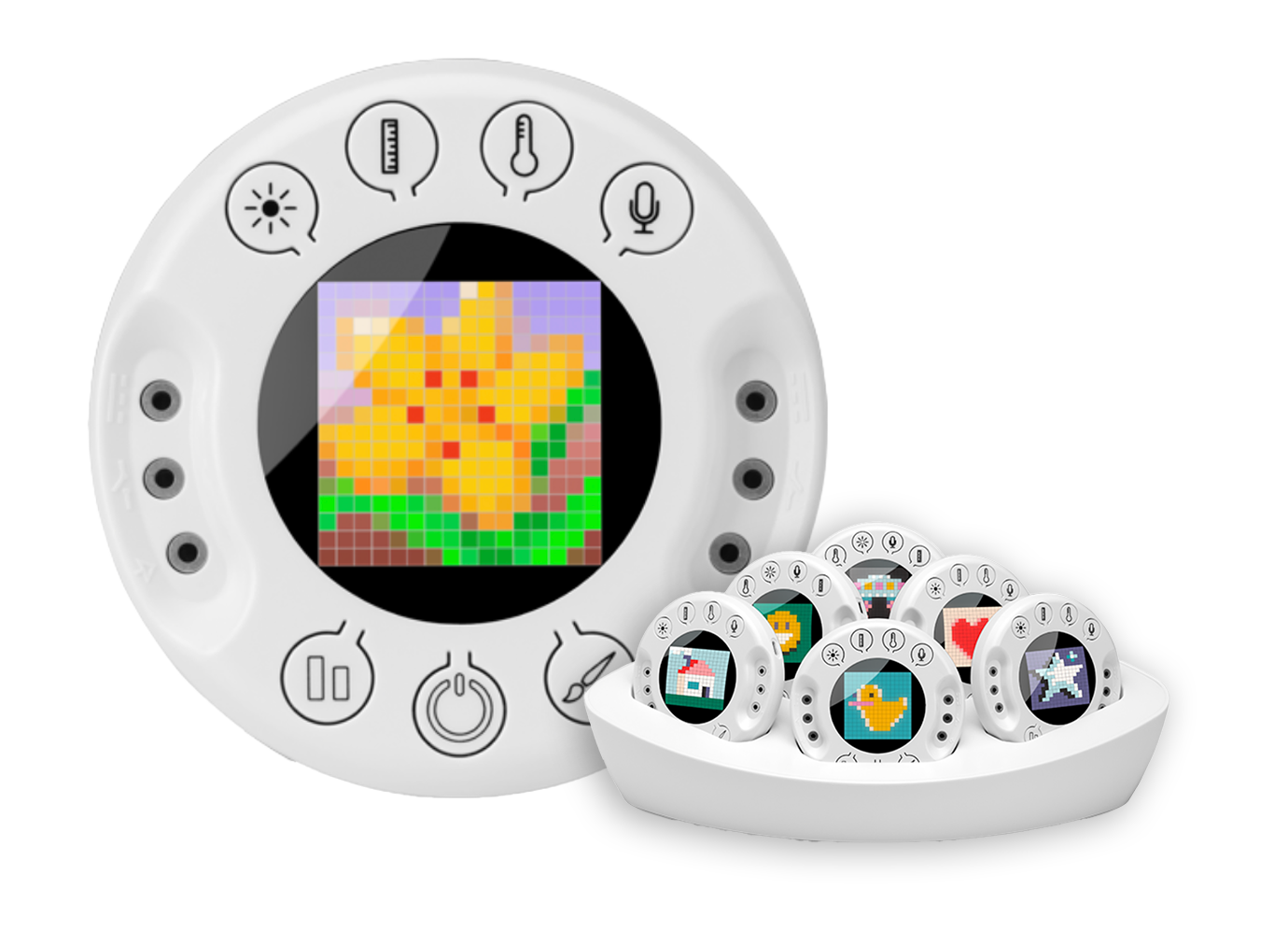Personalized Learning in a Device-Rich Environment: Leveraging Technology to Help All Learners Succeed
One of the benefits of a technology-rich classroom environment is supposed to be better opportunities to personalize learning for all students.

One of the benefits of a technology-rich classroom environment is supposed to be better opportunities to personalize learning for all students. But what does that look like in practice? In October, over fifty leaders from districts around the country (and a few from Canada) met to discuss what personalized learning looks like in their districts. The Tech & Learning Leadership Summit gave participants the chance to network, learn with and from each other, and learn about programs that might be useful for them and their districts.
The weekend started off on Friday with a huge welcome and a bus ride. Participants met with scientists at Argonne National Laboratory to learn about technology use at the highest level. One group of leaders got to learn about the supercomputer on campus, while the other group explored the Advanced Photon Source, or APS.
Argonne National Laboratory is getting ready for a large remodel, and participants were treated to a discussion about all the upgrades that are on the horizon. The new supercomputer, Aurora, will be the fastest in the world. The rebuilt APS will allow for calculations that are ten times more precise and produce thousands of times more data. Companies that use space at Argonne for research will be able to work faster than they ever have before. The possibilities are endless with these new improvements, and the excitement was evident on the faces of all who spoke about it.
After a tour of the facilities, participants were able to have a discussion about the educational opportunities for everyone—from pre-K to postgraduate students. Argonne National Laboratory is leading the charge to bring STEM education into the classroom and to help students find their spark in whatever way they can. Megan Bruozas, manager of Argonne’s educational programs and outreach, introduced ideas tied to courses of study for different age levels and discussed the individualized attention that can be given to students in the workshops and camps the Laboratory offers. The bus ride back to the hotel was lively with discussions about opportunities for students, possible partnerships, and excited techies geeking out over the things they had just seen.

Saturday morning began with an animated keynote by Alex Seeskin around the idea of adult relationships easing transitions for students. Seeskin’s work with the Urban Education Institute, in partnership with Chicago Public Schools, has been instrumental in opening people’s eyes to the idea that factory-based education no longer makes sense and that relationships and autonomy now drive student success.
The very idea that students can move through our current education system unscathed seems almost laughable after listening to Seeskin’s talk about his co-authored report “Practice-Driven Data; Lessons from Chicago’s Approach to Research, Data, and Practice in Education.” The lack of preparation for transitions—from class to class, teacher to teacher, and especially year to year—is a large part of why some students aren’t able to be successful in high school or beyond. Seeskin suggests that schools and districts plan for tough transition periods in a way that lowers as much of the risk of failure as possible.
The table discussions after Seeskin’s talk centered around data—its use, place, and abuse in the public education sector. Groups were lively and informative, with many leaders sharing about their districts and learning about successes in others.
The remainder of the day was split between working groups and vendor discussions. Participants had a choice of eight different working groups with collaborative discussions led by a Tech & Learning editor. Topics ranged from learning spaces to emerging technology and touched on ideas including personalized learning, student data privacy, and changing teacher pedagogy.
Vendors showcased wonderful new tools meant to streamline school processes and eliminate red tape. Technology resellers, Internet filter providers, and vendors of online portfolio platforms and single-sign-on solutions were all on hand to walk participants through demos. The theme of the weekend was “How can we make your lives easier and your students safer?”

The discussion groups were designed to include a mix of people with different roles from districts of different sizes. This recipe provided for rich discussions of what worked, what didn’t, and why. The digital citizenship discussion, in particular, was energetic to the verge of heated, with every single participant in the room agreeing on one thing— they all want what is best for their students.
Really, the idea that all participants want what is best for their students seems to be what this weekend boiled down to. Every educational leader there was eager to learn what they could take back to their districts that would make a positive impact on students’ lives.
From the Argonne National Laboratory supercomputer to the keynote celebrating successful transition models to dinners around tables with newfound friends, this weekend was about relationships. What’s the relationship between a supercomputer named Aurora and the Advanced Photon Source at Argonne? What’s the relationship between a well-supported high-school freshman and their success rate as they think about college?
While personalized learning can be enhanced by technology, isn’t it, at its core, about getting to know someone else? It’s about finding out what makes them tick and their priorities. Then technology can be called on to facilitate creativity, critical thinking, collaboration, and communication. Tools are the how, but personalized learning has to come from the who and the why. Who are your students as learners, and why do they want to come to school? Thank you, Tech & Learning, for helping leaders bring it back to why we are here—to help students learn how to be successful.
Nikki Schafer is an Instructional Technology Specialist in Omaha, Nebraska, where she lives with her husband, two little girls and two large dogs. Nikki has a bachelors in Music Education from the University of Nebraska at Lincoln, a Masters in Instructional Technology from the University of Nebraska at Kearney, and is currently working towards a Masters in Educational Leadership with Doane University.
Tech & Learning Newsletter
Tools and ideas to transform education. Sign up below.
Nikki Schafer
